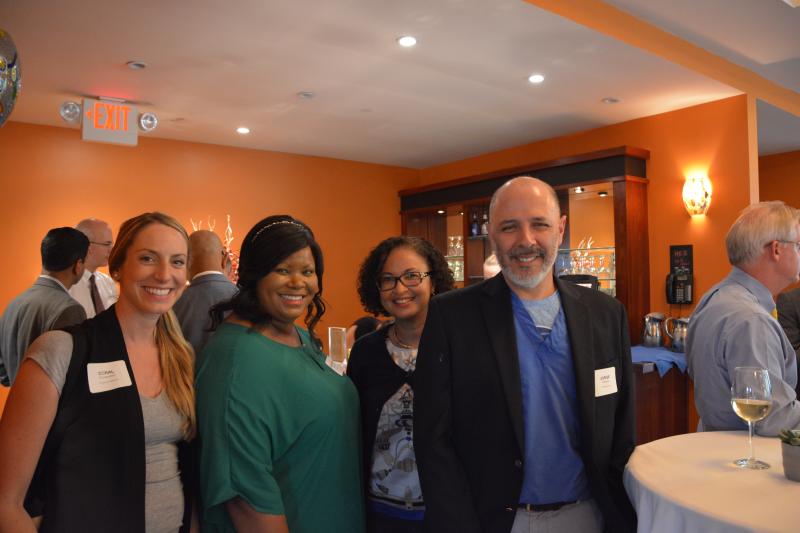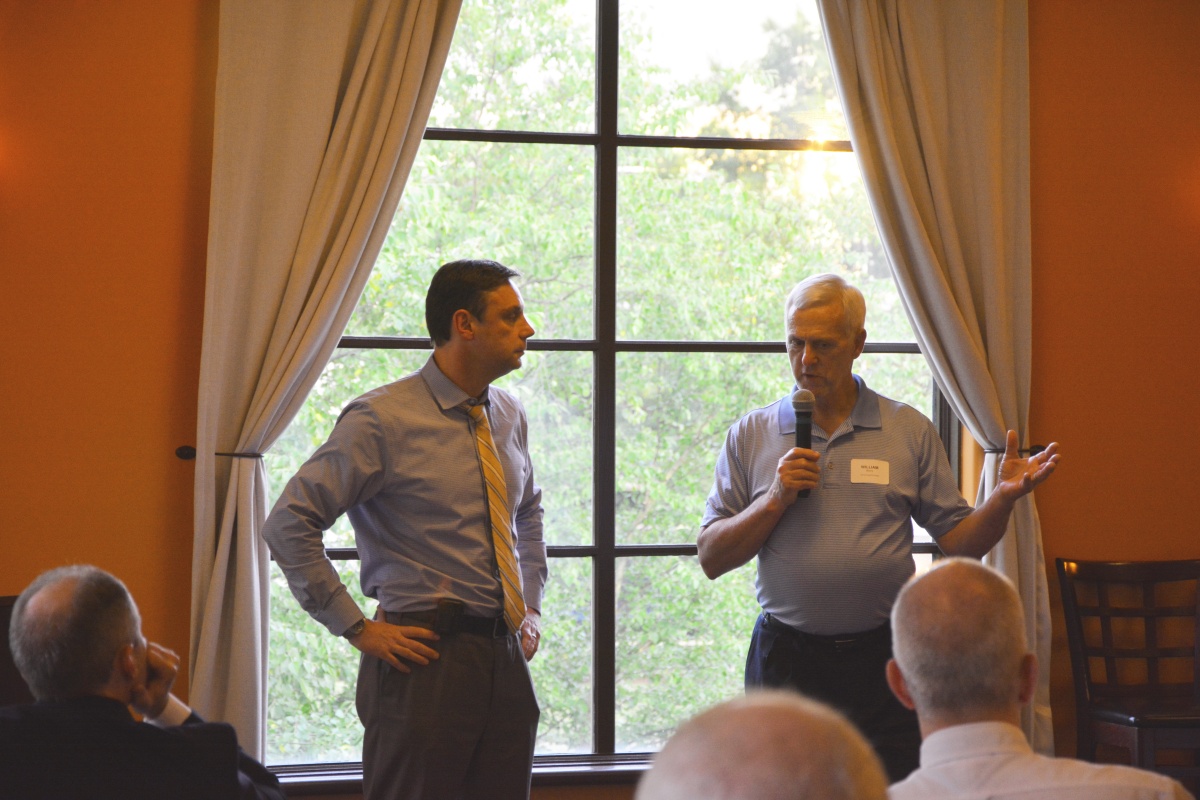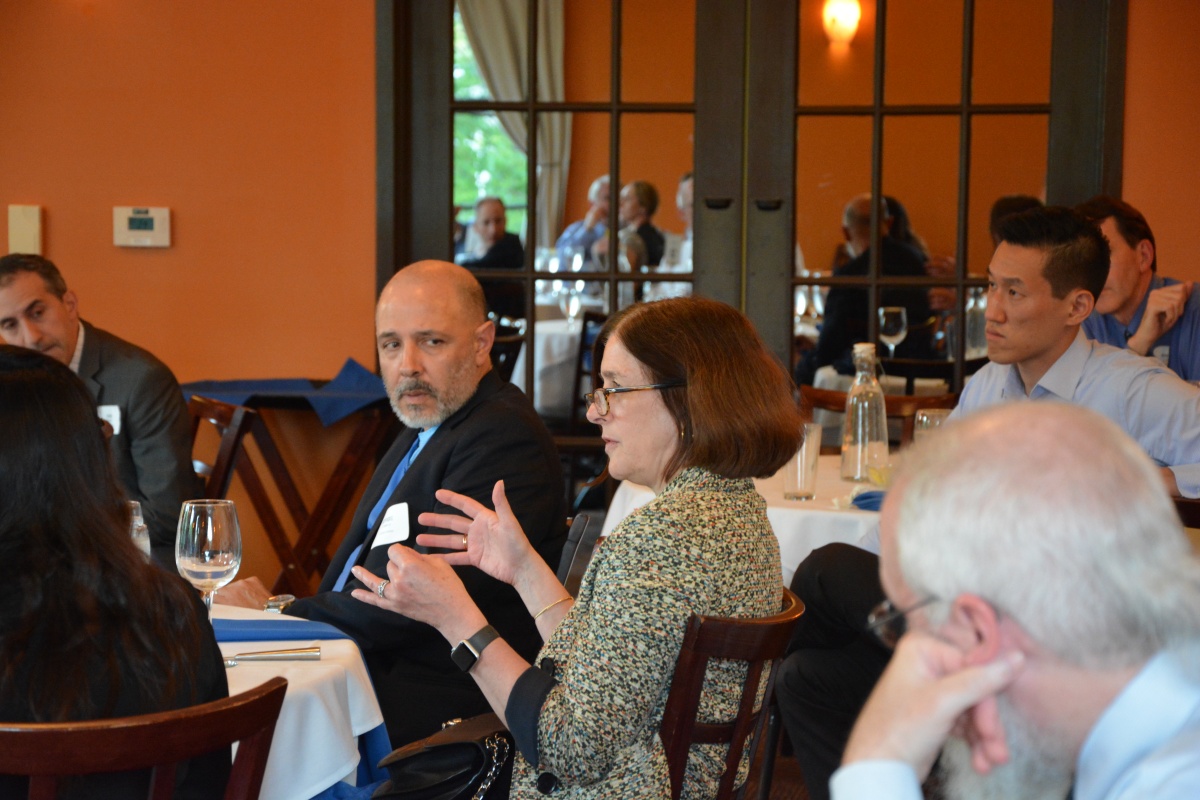
In May, Department of Medicine faculty based in Durham and Raleigh came together for a second collaborative event to discuss how the two Duke locations can build relationships and best practices.
Faculty representing multiple divisions across the Department of Medicine heard presentations on best practices for better communication, clinical research, and successful educational models.
Andrew Muir, MD, professor of medicine and chief of the Division of Gastroenterology, presented a successful educational model being championed in GI between Durham and Raleigh.
Joined by Raleigh colleagues Karen Chachu, MD, PhD, assistant professor of medicine (Gastroenterology), and Jorge Obando, MD, associate professor of medicine (Gastroenterology), Dr. Muir shared their strategy for the Raleigh practice to recruit outstanding clinicians who could bring expertise in subspecialty areas of GI.
"Patients with IBD, pancreatobiliary disorders and liver disease can now get first class care in Wake County. Additionally, we appointed medical directors at our Raleigh sites and empowered them to manage at the local level," Muir said.
GI also added fellows to the Raleigh service to broaden their experience. The fellows provide another connection back to the larger division.
Daniel George, MD, professor of medicine (Medical Oncology), shared a model for clinical research joined by Raleigh colleague William Berry, MD, clinical associate (Medical Oncology).
“Bridging clinical research in Durham and Wake counties requires champions on both sides as well as a commitment to infrastructure support and  continuous communication. With the right collaborative mix, everyone from patients to investigators and staff can benefit,” said Dr. George.
continuous communication. With the right collaborative mix, everyone from patients to investigators and staff can benefit,” said Dr. George.
By sharing best practices, others in the Department of Medicine can learn from peers on ways they can find success within their division.
Department leaders including Kathleen Cooney, MD, chair of the department of medicine, David Zaas, MD, president of Duke Raleigh Hospital, and other department leaders, are helping to improve the communication and build connections between Durham and Raleigh, ultimately to benefit faculty, trainees, and patients.



Learn more about Duke Raleigh Hospital.